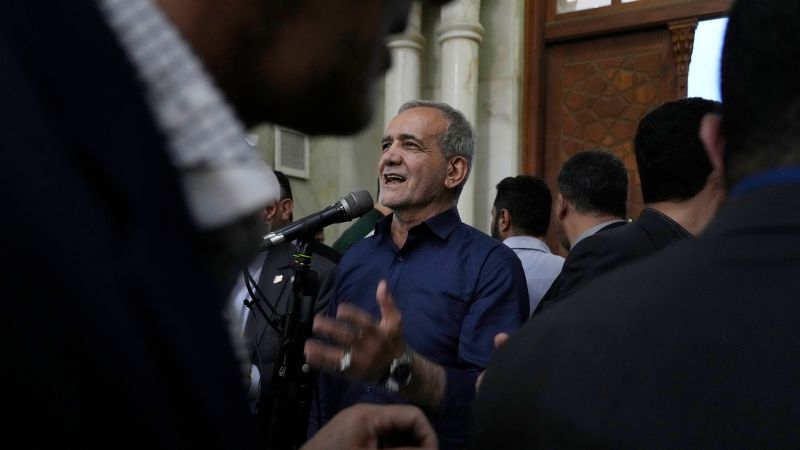Vahid Saleemi/AP/File
Iran’s next president-elect, 69-year-old heart surgeon and member of parliament Massoud Pezeshkian, defeated hardline rival Saeed Jalili in Iran’s presidential election last week.
CNN
—
Iranian President-elect Massoud Pezechkian said he looked forward to improved relations with Europe, even as he criticized the Europeans for backtracking on promises to ease the impact of U.S. sanctions.
“Despite these missteps, I look forward to a constructive dialogue with European countries based on the principles of mutual respect and equal footing to steer our relations in the right direction,” Pezechkian wrote in the English-language Tehran Times newspaper.
Pezeshkian added that there were many areas for cooperation “if European countries accept this reality and abandon the self-righteous moral superiority coupled with the manufactured crises that have plagued our relations for so long.”
In 2018, under then-President Donald Trump, the U.S. The landmark nuclear dealThe deal, officially known as the Joint Comprehensive Plan of Action (JCPOA), was abandoned, with the EU, Britain, France and Germany later saying they “deeply regretted” the move and reimposing sanctions.
Pezeshkian said European countries had made 11 commitments to Iran to “salvage the agreement and mitigate the impact of illegal and unilateral US sanctions on our economy.”
“Europeans have broken all of these commitments, but now unreasonably expect Iran to unilaterally fulfill all of its obligations under the nuclear deal,” he added.
He said the commitments included “ensuring effective banking transactions, effectively protecting companies from US sanctions and facilitating investment in Iran.”
Pezechkian, a 69-year-old cardiac surgeon and member of parliament, Iranian Presidential Election Winner He was elected last Saturday, beating hardline rival Saeed Jalili, a former Iranian nuclear negotiator, in a crucial vote amid rising tensions at home and abroad.
The reformists support dialogue with Iran’s enemies, particularly regarding its nuclear program, and see it as a way to address the country’s domestic problems.
“We want to emphasize that Iran’s defense policy does not include nuclear weapons and urge the United States to learn from past miscalculations and adjust its policy accordingly,” Pezeshkian wrote.
“Policymakers in Washington need to realize that a policy of pitting regional countries against each other has not worked and will not work in the future,” he added.
Iran’s Supreme Leader, Ayatollah Seyyed Ali Khamenei, has the final say on all state affairs, and on foreign policy, Pezeshkian would ultimately be deferring to him, who has criticized those who call for better ties with the West.


